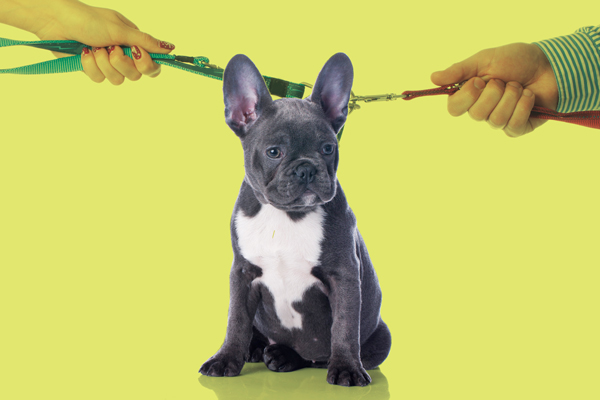Financial advisors with married clients going through divorce sometimes have to help them split their money and the possessions. But how can you help them decide who gets Fido and Fluffy?
Enter the pet prenup.
Many people consider their pets to be as much a part of the family as their children, and couples are beginning to plan ahead for who gets the pet—or pets—in a divorce, says Jacqueline Newman, matrimonial law attorney and managing partner with Berkman Bottger Newman & Rodd LLP in New York City. Newman is the author of Soon to Be Ex: A Guide to Your Perfect Divorce & Relaunch and Soon-to-Be Ex for Men: Preserving Wealth, Fatherhood, and Sanity During Divorce.
Newman, who works with financial advisors to help settle divorces, says she has had several cases where a pet that’s not included in the prenup became a contentious issue. In the prenups she has done for pet-owning couples with children, the animals usually follow the children. Pet prenups are included in the overall prenup, and the cost can vary based on the complexity of the situation.
Pets are considered property in New York state, for example, so they can be put in a prenuptial agreement. But Newman says she can foresee a day when a prenup will be overturned because a judge determines its provisions are not in the best interests of the pet. That’s because when it comes to pets and divorce, some judges are beginning to consider what is best for the pet in making a determination about its future.
“U.S. courts are starting to treat pet custody cases the way they treat child custody cases,” Newman says. “Essentially, the court considers the pet’s well-being and happiness, rather than merely settling the issue of who is an animal’s rightful owner.”
If there is no prenup to decide a pet’s fate, Newman advises the person who wants custody of the pet to document who provides the bulk of the care and who pays for the animal’s expenses.
“When the judge is faced with having to make a decision, evidence of your involvement in vet visits, shopping for pricey pet food, day-to-day management and setting up play dates with other pups will definitely help your case,” she says. “Ultimately, you need to be able to show a court that you are, and have been during the marriage, the primary caretaker for the pet. You need to be able to show the judge that your beloved pup will thrive best in your care.”
Newman notes that courts do not have a way to measure people’s love for their pets, but if someone is putting time and energy into making sure the pet is healthy, happy and well-fed, this will speak volumes and the court will take notice.
Pet Prenups Can Eliminate At Least One Hassle During A Divorce
March 1, 2019
« Previous Article
| Next Article »
Login in order to post a comment








